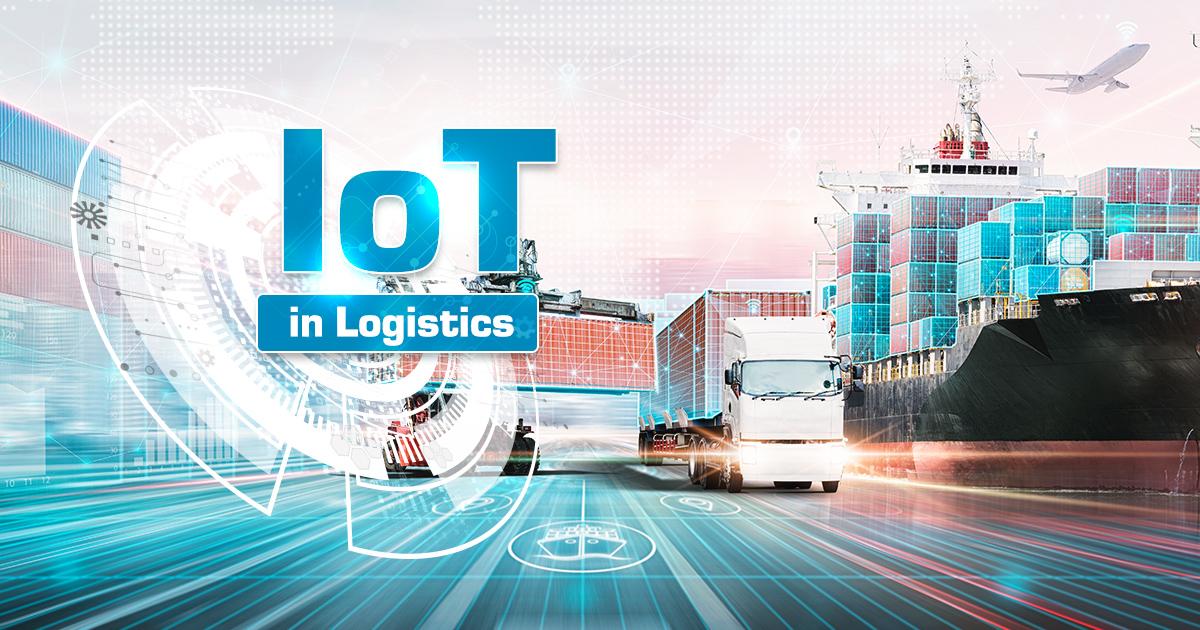
A constant data flow can revolutionize how supply chain management is handled and optimized. By leveraging the power of automation, human intervention is no longer required in sudden and unforeseen circumstances. IoT technology revolutionizes shipment tracking, allowing for increased precision, ambient environment monitoring, and streamlined fleet management. Uncover how the Internet of Things is innovatively transforming logistics in this article.
Here, we will explore how IoT can help businesses strengthen their supply chains and achieve greater efficiency by harnessing the power of IoT in logistics. With the advent of IoT, it is now possible for companies to monitor supply chain performance in real time and make quicker decisions. As a result, companies benefit from a better sense of when goods are arriving, where they are going, and how long it will take them to reach their destination. This allows for more accurate delivery times and fewer delays due to unforeseen circumstances.
By leveraging the power of the Internet of Things, logistics companies have been able to unlock transformative capabilities such as sophisticated telemetry solutions and monitoring systems. As a result, the globally connected market has experienced exponential growth in recent years. In 2016, it was valued at around $10.04 billion and will reach a staggering $41.30 billion by 2021. When you add it all up, that’s a total annual growth rate of 32% and higher.
Applications of IoT In the Logistics Industry
Incorporating IoT into the logistics industry can make an immense impact on its pillars and open up a world of potential growth opportunities. In the modern corporate world, harnessing the power of the Internet of Things can bring a number of key benefits to traditional logistics companies. Here are just some examples:
Location and Route Management:
Trucks are essential to the success of any logistics company, providing crucial support and resources. In the US, 70% of all goods are transported by trucks. If you consider that nearly 95% of manufactured products must be delivered at some point via trucking systems. It becomes clear just how integral this sector is for our economy. To ensure successful truck operations, logistics, and fleet companies need dependable systems to help them manage their fleets.
The location and route management solution of Internet of Things (IoT) technology is incredibly sought after in the logistics industry. Through GPS tracking systems and geofencing techniques, logistics managers can now monitor their truck’s locations in real time. Furthermore, with this solution, they can also remotely track their trucks’ routes. In addition, this assists the logistics companies in monitoring driver activity and guaranteeing that goods are delivered on time.
These vehicle tracking solutions not only monitor the progress of shipments. It also provides real-time alerts to managers via push notifications in case they are affected by any anomalies. These may range from thunderstorms or accidents on a freeway that could delay delivery times. Logistics companies can rely on these features to help them plan and organize their delivery schedule with ease, making the process faster and smoother.
Inventory Tracking and Warehousing:
The Internet of Things (IoT) not only supports fleet management services but also assists in safeguarding and monitoring merchandise levels during logistics processes. With a logistics ecosystem, companies can achieve transparency in all their operations to ensure smooth inventory organization.
Companies can quickly and easily monitor their stock items, tracking both the current condition and whereabouts of each item through RFID tags and sensors. In other words, IoT enables the building of an intelligent warehouse system that allows a company to prevent losses and ensure secure storage of goods while quickly tracking down items needed. Moreover, businesses can also benefit from revamping their warehousing operations by cutting labor costs and improving efficiency due to fewer manual handling mistakes.
Autonomous and Self-Driving Cars:
Logistics managers are not only responsible for overseeing the transportation of goods. They must also manage assets along the way. Truckers and the cargo they transport can be safeguarded by integrating self-driving vehicles. This will ensure their safety on the road while allowing them to remain diligent in their task.
Autonomous and self-driving vehicles are revolutionizing the automotive industry, with advanced technologies such as artificial intelligence and machine learning combining to create connected infrastructures through the Internet of Things. Businesses can begin utilizing the power of IoT in logistics by embracing autonomous vehicles. Through data analysis and processing of multiple shipment parameters, smart driving routes and directions may be created to maximize efficiency.
Leverage IoT in Logistics
The logistics industry is now experiencing a surge of applications powered by the Internet of Things (IoT). Leveraging the power of IoT-integrated solutions, businesses can leverage data to create valuable insights and further improve speed and agility with the delivery of their products. In addition, IoT for logistics will bolster existing structures and refine their fundamental characteristics. Companies can leverage the most innovative mobile technologies to amplify their supply chain management and distribution systems to capitalize on the booming global connected logistics market.
SEE ALSO:
